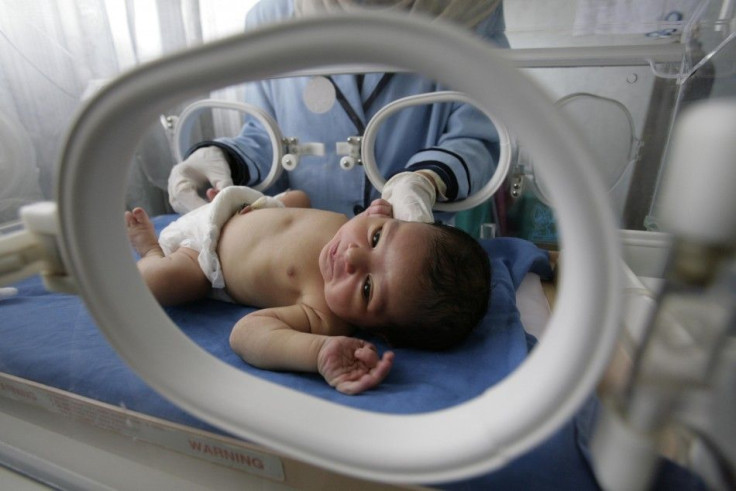Unborn Babies Can Feel Pain in Womb, Study Suggests

Unborn babies can make the distinction between pain and touch when they have been in the womb for 35 to 37 weeks, scientists suggest in a new study.
Scientists at the University College London in England measured the brain activity of 46 babies in the University College Hospital Elizabeth Garrett Anderson Wing, which offers maternity and neonatal services.
The scientists measured electrical brain activity while the babies underwent a standard procedure in which they have a blood sample collected from their heels.
Premature babies who are younger than 35 weeks have similar brain responses when they experience touch or pain, research fellow Dr. Rebeccah Slater said in a UCL press release. After this time there is a gradual change, rather than a sudden shift, when the brain starts to process the two types of stimuli in a distinct manner.
Twenty-one of the babies observed were born prematurely. Those babies had general bursts of electrical activity in the brain, while babies born full-term showed electrical activity in more localized parts of the brain. This suggested that the older babies were able to distinguish pain from touch while still in gestation.
Of course, babies cannot tell us how they feel, so it is impossible to know what babies actually experience, the paper's lead author Dr. Lorenzo Fabrizi said in the press release. We cannot say that before this change in brain activity they don't feel pain.
Still, this study can help to understand how the human brain develops, Slater said.
It is important to understand how the human brain develops so that we can provide the best clinical care for hospitalized infants, Slater said.
The study was published in the journal Current Biology.
© Copyright IBTimes 2024. All rights reserved.











